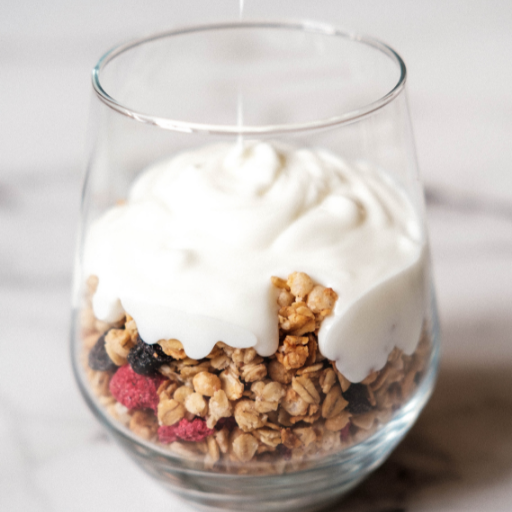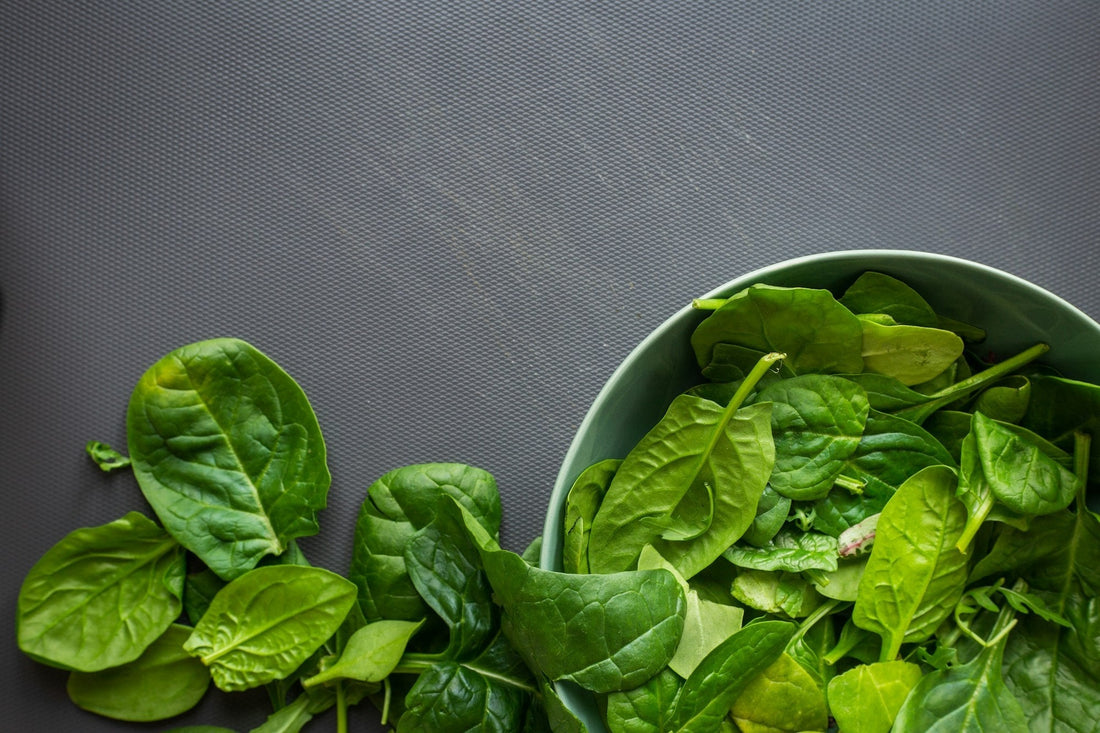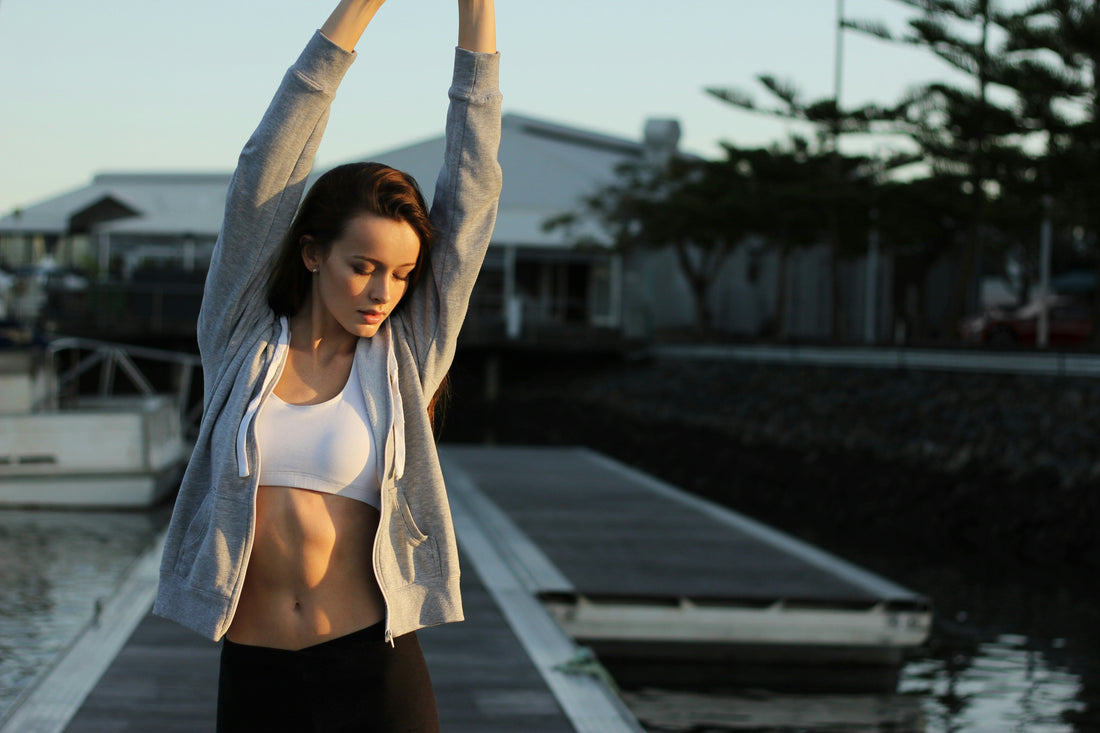Various factors can prevent you from having noticeably healthy hair. Hair issues like hair loss, dry hair, and brittleness can be an indicator that your hair health may be compromised.
Getting ample exercise, eating a well-balanced diet, and considering hair-specific daily vitamin packs can help you get the required nutrients that promote and maintain healthy hair.
Causes of hair loss, dry hair, and brittleness
Common issues like hair loss, dry hair, and brittleness are most often our hair's reactions to harsh environmental factors.
Overexposure to UV rays and improper use of hair care products can make hair dull and lifeless (1). Humidity and insufficient nutrient intake can also cause hair health concerns.
Factors involved in hair loss
Hair loss is a natural occurrence. We lose 5% to 10% of our hair on a regular basis1. But when you lose more than this amount, it may point to a more serious issue.
Age, genetics, and hormones all play a part in hair loss, but so can medication, illness or infection (3).
There is also the issue of hair loss caused by improper hair care routines and the use of overly harsh hair products (4). Some product formulations might be too strong or incompatible with your hair type. This may even cause skin irritation that relates to hair loss. More so, brushing hair too roughly, getting hair treatments, and washing hair too frequently are possible causes of hair loss (4). It helps to examine your hair care regimen to see if there are hair care rituals that may not be working for you. This can help you decide if you need to find alternatives, or stop them altogether.
Hair loss can also happen because of a lack of certain nutrients required to keep your hair strong (3). The lack of biotin, for instance, can increase the chances of hair loss (5). Daily vitamin packs that contain biotin may help to maintain and support hair strength and thickness.
Vitamin D, a vitamin and hormone, also plays an important role in hair health, due to its anti-inflammatory properties. Hair loss can sometimes signal a vitamin D deficiency that can result in a type of autoimmune disease that causes the immune system to attack hair follicles.
Causes of dry hair and brittleness
Dry hair and brittleness can be caused by poor haircare management as well as environmental factors.
Humidity, especially during the summer, can make hair dry and frizzy because of the amount of hydrogen in the air. Hydrogen bonds are broken by water in the air, a process sped up by increased humidity during the hotter months of the year. This causes hair to lose its shape, and at some point, can also cause hair fall (6).
Your hair is also exposed to both heat and ultraviolet (UV) rays that can damage hair when outdoors. Heat can damage the hair shaft, making it appear cracked and unable to retain moisture levels that allow hair to be healthy (7). UV rays exposure also damages your healthy hair as it breaks down the proteins needed to keep it strong (8).
Excessive shampooing not only strips the scalp of oils that protects the hair. It also weakens hydrogen bonds and makes them more prone to breakage. Some hair care tools (like brushes and combs of certain materials) put stress on hair strands with excessive friction that can cause hair brittleness and breakage (9).
The best way to prevent dry hair and brittleness from happening is to limit sun exposure, and to switch out hair care routines which are doing more harm than good. It can also be helpful to be aware of vitamins and minerals which you can include in your daily vitamin packs to improve hair health.
What to do to improve hair health
It's a combination of three things: better hair care regimens, taking care of your body in its entirety and hair growth supplements.
It might be as easy as changing your shampoo brand or going to the salon less often. But a more effective and intensive hair care move you can make is to visit your doctor to learn about the vitamins and minerals you can take more of to improve hair health.
Much like how some people eat vitamin-packed and mineral-rich food to combat a host of health conditions, this also applies to hair health. Stocking up on collagen from protein, iron, and biotin supplements for hair are sure ways to aid your hair health (10). These nutrients are found in many foods accessible to most Australians.
Hair-growth supplements are helpful for anyone who is experiencing hair loss or hair thinning. If you just want to make your hair a little longer, healthier and shinier, hair-growth supplements can help support your cause.
Aside from a balanced diet and regular exercise, supplements can also maintain healthy hair. There might be times when the nutrients in the food you eat might not be enough to hit your daily targets. Adding specific nutrients to your daily vitamin packs can be a great accompaniment to your diet. Some of the best vitamins and minerals for hair health include:
Biotin
Biotin or vitamin B7 is a water-soluble vitamin that helps break down fats, protein, and amino acids (11). It is present in gene expression and cell signalling (12).
Biotin helps in the production of keratin, which is among the structural components of hair (12). Having less biotin in your system may be signalled by hair loss.
Several studies have found that people with poor hair growth have addressed this issue after receiving biotin supplements (13). Further research shows that several women with hair thinning concerns have seen improvements after taking supplements containing biotin over a period of 90 days (14). Not only was there visible hair growth in areas where hair was sparse, but hair fall also noticeably decreased while taking the supplements.
Biotin for hair health can be added to your own daily vitamin packs, but it can also be sourced from different foods. The following foods contain biotin for hair growth (15).
- Meat and organs from pork and beef
- Eggs
- Fish such as salmon and tuna
- Sunflower seeds and almonds
- Vegetables and fruits like spinach, avocado, broccoli, apples, bananas and sweet potatoes
- Milk
- Yoghurt
The recommended biotin intake for women aged 19 years and older is 25mg per day (13).
Collagen
What makes collagen great for hair growth and health is its role in cell renewal and connective tissue support (16). Collagen is one of the ingredients of protein molecules and is made of amino acids, both of which strongly support hair growth. Marine collagen specifically has been shown to benefit hair growth (16).
Research has been carried out to illustrate the relationship between collagen and healthy hair. Hair growth was seen in a patient who was experiencing extreme hair loss with the use of marine-based collagen (17). A second study showed the link between protein and keratin which are both used to stimulate hair growth (18).
Most food contains collagen but our bodies can also create its own, as long as the nutrients needed for collagen production are present. Foods rich in collagen include (19):
- Beef tendon, fish, and chicken
- Eggs
- Nuts and seeds
- Beans and lentils
- Dairy products such as milk, cheese, and yogurt
- Soy products such as tofu
It is recommended that women aged 19 to 70 years consume at least 37-46g of protein daily to get sufficient amounts of collagen (20). Women aged 71 and up are recommended to consume up to 57g of protein a day.
If you feel that you are not getting enough collagen from your diet, collagen can be added to your daily vitamin packs.
Vitamin B12
Vitamin B12 promotes healthy hair growth by helping in the formation of red blood cells. Getting enough vitamin B12 is essential for overall health. Good sources of vitamin B12 include meat, dairy, and other animal foods.
B12 is a vitamin that is used to help with certain health issues, including:
- Circadian rhythm sleep disorders
- Lack of energy
- Nutritional support for vegans
- Immune system support
- Nervous system health
Zinc
Zinc is an important nutrient that supports and promotes hair health (21). One review mentions zinc deficiency as one of the results of hair loss or alopecia (23). This is also echoed in another study that showed that in a sample of 312 patients with different hair loss conditions, most of them had lower zinc concentrations in comparison to a population standard (24). Additionally, a zinc deficiency also affects the hair by making it prone to brittleness and slowing hair growth (25).
Consuming more meat-based foods versus grains and plant-based foods can provide more zinc. Some of the food rich in zinc are listed below (26):
- Seafood such as crab, lobster, fish, and especially oysters
- Beef, pork, and chicken
- Nuts and seeds like pumpkin seeds, cashews, and almonds
- Baked beans, chickpeas, kidney beans, and peas
- Bread, cereals, and oatmeal
- Different types of cheese
- Yogurt
- Milk
It might be a little challenging for vegans and vegetarians to get plant-based zinc because of phytates which reduces the absorption of nutrients. Including zinc supplements alongside a balanced diet can help ensure that you receive sufficient amounts of the nutrient for hair health.
Cranberry
Cranberry is packed with mostly vitamin C and other nutrients which can assist in hair growth. It also contains silica, which plays a role in repairing the connective tissues in the hair (28).
Vitamin C is a water-soluble vitamin that minimises free radical damage in the body (28). This helps prevent hair loss especially when associated with aging (29). Vitamin C can also help patients with iron deficiency-related hair loss as it improves the absorption of iron in the body (31).
Women over 18 years of age are recommended to include 45mg of vitamin C in their diet sourced from raw or canned cranberries. Cranberry can also be consumed as a supplement as part of your daily vitamin pack.
Healthy hair can be achieved by improving hair care regimen, getting the right exercise, eating right, and supplementation via daily vitamin packs. Consuming nutrients such as biotin, zinc, collagen, and vitamin C from cranberries can help protect you from common hair issues like hair loss, dry hair, and brittleness.
Vitamins and supplements work best when paired with a healthy diet and lifestyle. You get to curate your own multivitamin packs with Vitable for benefits that stretch beyond hair health. Your daily vitamin subscription can contain an assortment of supplements that can provide holistic health benefits. You're one step closer to getting the best personalised vitamins in Australia. Worried about vitamin delivery? We'll send it right to your doorstep!
Learn more about other areas that biotin can help you with, plus other supplements that can benefit in different ways:
Biotin | Zinc | Cranberry | Collagen
*Always read the label. Follow the directions for use. If symptoms persist, talk to your health professional. Vitamin and/or mineral supplements should not replace a balanced diet.
References:
- Phillips, T. G., Slomiany, W. P., & Allison, R., “Hair Loss: Common Causes and Treatment”, American Family Physician. Published Sep. 15, 2017 on https://www.aafp.org/afp/2017/0915/p371.html, Accessed Aug. 13, 2021
- Dinh, Q. Q., & Sinclair, R., “Female pattern hair loss: current treatment concepts”. Clinical Interventions In Aging. Published 2007 on https://pubmed.ncbi.nlm.nih.gov/18044135/, Accessed Aug. 13, 2021
- “Patterned hair loss”, Better Health Channel. Published on https://www.betterhealth.vic.gov.au/health/conditionsandtreatments/patterned-hair-loss, Accessed Aug. 13, 2021
- “Hair Loss: Who Gets and Causes”. American Academy of Dermatology Association. Published on https://www.aad.org/public/diseases/hair-loss/causes/18-causes, Accessed Aug. 13, 2021
- Guo, E. L., & Katta, R., “Diet and hair loss: effects of nutrient deficiency and supplement use”, Dermatology Practical & Conceptual. Published Jan 31, 2017 on https://dpcj.org/index.php/dpc/article/view/dermatol-pract-concept-articleid-dp0701a01, Accessed Aug. 13, 2021
- Zuidema, P., Govaert, L. E., Baaijens, F. P., Ackermans, P. A., & Asvadi, S., “The influence of humidity on the viscoelastic behaviour of human hair”, Biorheology. Published 2003 on https://pubmed.ncbi.nlm.nih.gov/12775909/, Accessed Aug. 13, 2021
- Lee, Y., Kim, Y. D., Hyun, H. J., Pi, L. Q., Jin, X., & Lee, W. S., “Hair shaft damage from heat and drying time of hair dryer”. Annals of Dermatology. Published Nov. 3, 2011 on https://anndermatol.org/DOIx.php?id=10.5021/ad.2011.23.4.455, Accessed Aug 13, 2021
- Sebetić, K., Sjerobabski Masnec, I., Cavka, V., Biljan, D., & Krolo, I. “UV damage of the hair”, Collegium antropologicum. Published Oct. 2008 on https://pubmed.ncbi.nlm.nih.gov/19138021/, Accessed Aug. 13, 2021
- Gavazzoni Dias M. F., “Hair cosmetics: an overview”, International Journal of Trichology. Published Mar. 18, 2015 on https://doi.org/10.4103/0974-7753.153450, Accessed Aug. 13, 2021
- “Hair Loss: Who Gets and Causes”. American Academy of Dermatology Association. Published on https://www.aad.org/public/diseases/hair-loss/causes/18-causes, Accessed Aug. 13, 2021
- “Biotin”, Ministry of Health: National Health and Medical Research Council. Published on https://www.nrv.gov.au/nutrients/biotin, Accessed Aug. 13, 2021
- “Biotin”, Vitable Research Library. Published on https://research.get.vitable.com.au/biotin, Accessed Aug. 13, 2021
- Patel, D. P., Swink, S. M., & Castelo-Soccio, L., “A Review of the Use of Biotin for Hair Loss”. Skin Appendage Disorders, Published Apr. 27, 2017 on https://www.karger.com/Article/FullText/462981, Accessed Aug. 13, 2021
- Glynis A., “A Double-blind, Placebo-controlled Study Evaluating the Efficacy of an Oral Supplement in Women with Self-perceived Thinning Hair”. The Journal of Clinical and Aesthetic Dermatology. Published Nov. 2012 on https://www.ncbi.nlm.nih.gov/pmc/articles/PMC3509882/, Accessed Aug. 13, 2021
- “Biotin”, National Institute of Health: Office of Dietary Supplements. Published on https://ods.od.nih.gov/factsheets/Biotin-HealthProfessional/, Accessed Aug. 13, 2021
- “Collagen”, Vitable Research Library. Published on https://research.get.vitable.com.au/collagen, Accessed Aug. 13, 2021
- Kim, B. Y., & Kim, H. S., “Successful hair regrowth in a Korean patient with alopecia universalis following tofacitinib treatment”. Singapore Medical Journal. Published May 2017 on http://www.smj.org.sg/article/successful-hair-regrowth-korean-patient-alopecia-universalis-following-tofacitinib-treatment, Accessed Aug. 13, 2021
- Yang, F. C., Zhang, Y., & Rheinstädter, M. C., “The structure of people's hair”. PeerJ, Published Oct. 14, 2014 on https://peerj.com/articles/619/, Accessed Aug. 13, 2021
- “All About Protein”, Dietitians Association of Australia. Published on https://dietitiansaustralia.org.au/smart-eating-for-you/smart-eating-fast-facts/nourishing-nutrients/all-about-protein-in-your-diet/, Accessed Aug. 13, 2021
- “Protein”, Ministry of Health: National Health and Medical Research Council. Published on https://www.nrv.gov.au/nutrients/protein, Accessed Aug. 13, 2021
- “Zinc”, Vitable Research Library. Published on https://research.get.vitable.com.au/zinc, Accessed Aug. 13, 2021
- “Zinc and your health”, Health Direct, Published on https://www.healthdirect.gov.au/zinc, Accessed Aug. 13, 2021
- Almohanna, H. M., Ahmed, A. A., Tsatalis, J. P., & Tosti, A., “The Role of Vitamins and Minerals in Hair Loss: A Review”. Dermatology and Therapy. Published Dec. 13, 2018 on https://link.springer.com/article/10.1007%2Fs13555-018-0278-6, Accessed Aug. 13, 2021
- Kil, M. S., Kim, C. W., & Kim, S. S., “Analysis of serum zinc and copper concentrations in hair loss”. Annals of Dermatology. Published Nov. 30, 2013 on https://anndermatol.org/DOIx.php?id=10.5021/ad.2013.25.4.405, Accessed Aug. 13, 2021
- Fattah, ANS., Atef, MM., Al-Qaradaghi, SM., “Evaluation of serum zinc level in patients with newly diagnosed and resistant alopecia areata”. International Journal of Dermatology, Published Jul. 3, 2015 on https://onlinelibrary.wiley.com/doi/10.1111/ijd.12769, Accessed Aug. 13, 2021
- “Zinc”, National Institute of Health: Office of Dietary Supplements. Published on https://ods.od.nih.gov/factsheets/Zinc-HealthProfessional/, Accessed Aug. 13, 2021
- “Zinc”, Ministry of Health: National Health and Medical Research Council. Published on https://www.nrv.gov.au/nutrients/zinc, Accessed Aug. 13, 2021
- “Cranberry”, Vitable Research Library. Published on https://research.get.vitable.com.au/cranberry, Accessed Aug. 13, 2021
- Trüeb R. M., “Oxidative stress in ageing of hair”. International Journal of Trichology, Published Jan. 2009 on https://doi.org/10.4103/0974-7753.51923, Accessed Aug. 13, 2021
- Almohanna, H. M., Ahmed, A. A., Tsatalis, J. P., & Tosti, A., “The Role of Vitamins and Minerals in Hair Loss: A Review”. Dermatology and Therapy. Published Dec. 13, 2018 on https://link.springer.com/article/10.1007%2Fs13555-018-0278-6, Accessed Aug. 13, 2021
- “Vitamin C”, National Institute of Health: Office of Dietary Supplements. Published on https://ods.od.nih.gov/factsheets/VitaminC-HealthProfessional/, Accessed Aug. 13, 2021
- “Vitamin C”, Ministry of Health: National Health and Medical Research Council. Published on https://www.nrv.gov.au/nutrients/vitamin-c, Accessed Aug. 13, 2021







